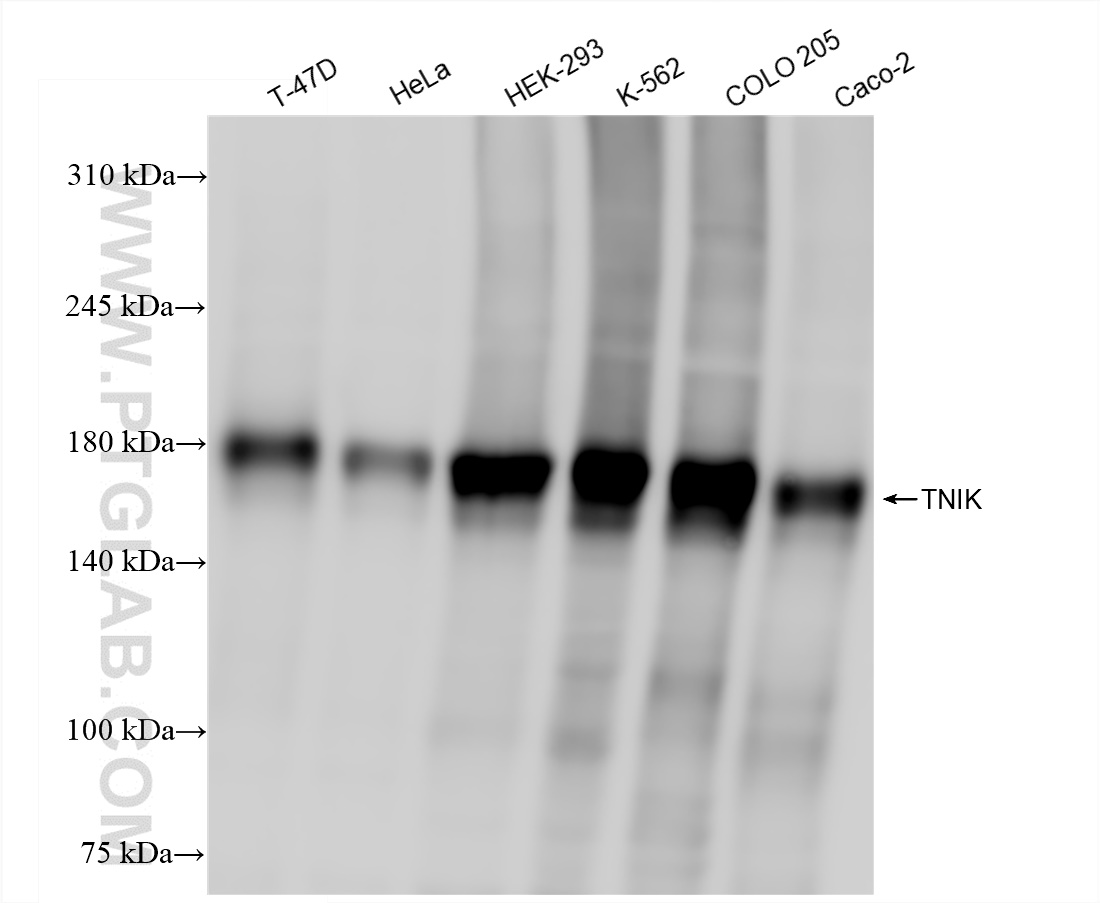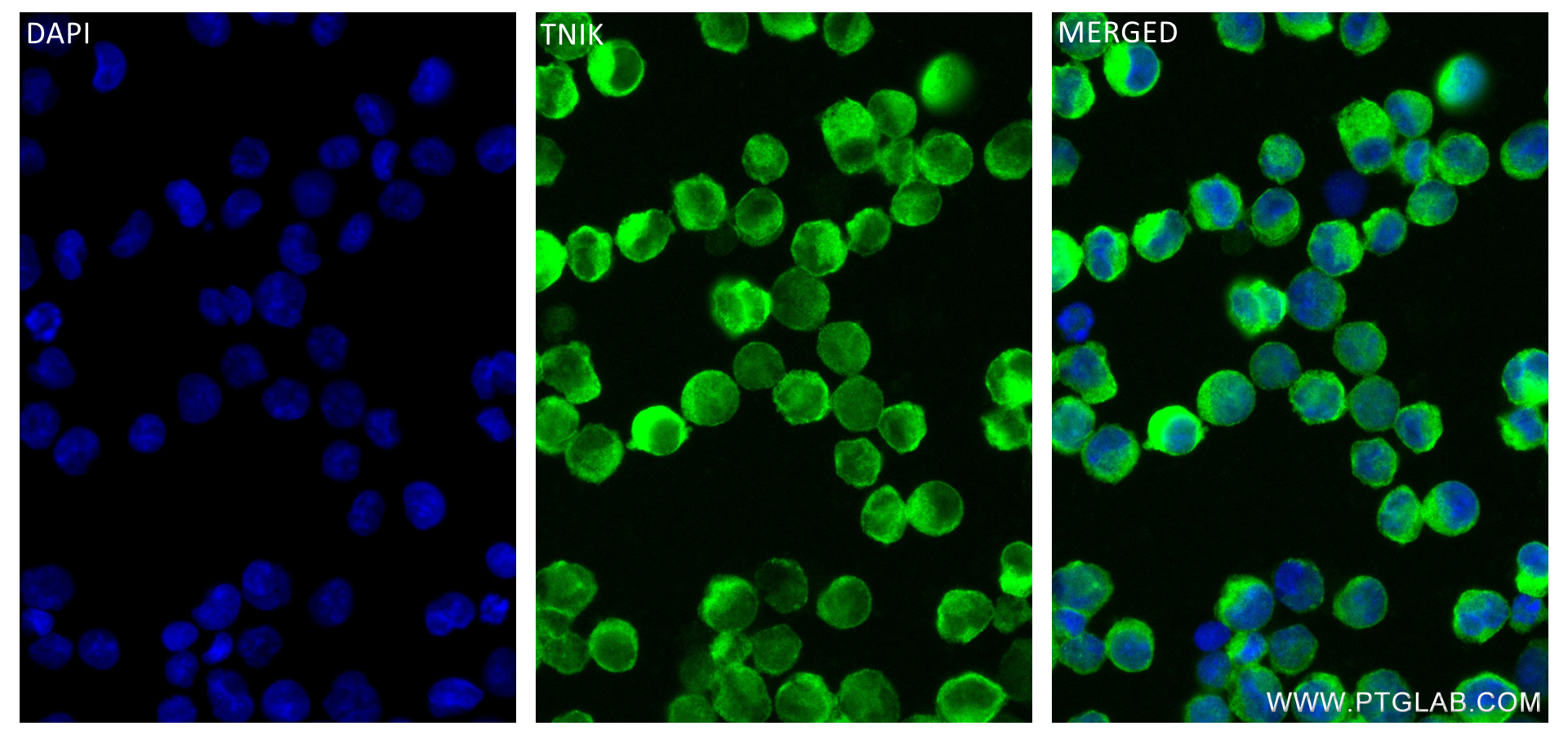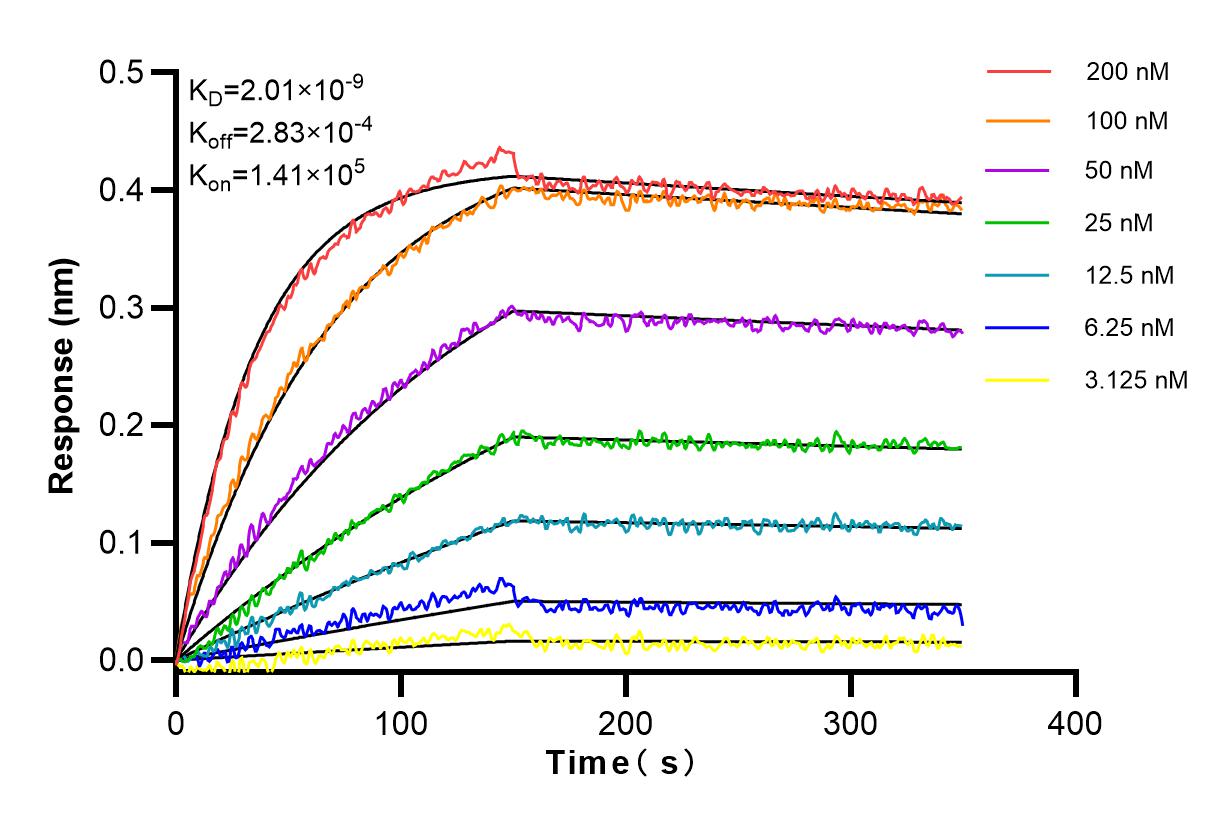验证数据展示
经过测试的应用
| Positive WB detected in | T-47D cells, HeLa cells, HEK-293 cells, K-562 cells, COLO 205 cells, Caco-2 cells |
| Positive IF/ICC detected in | K-562 cells |
推荐稀释比
| 应用 | 推荐稀释比 |
|---|---|
| Western Blot (WB) | WB : 1:500-1:2000 |
| Immunofluorescence (IF)/ICC | IF/ICC : 1:125-1:500 |
| It is recommended that this reagent should be titrated in each testing system to obtain optimal results. | |
| Sample-dependent, Check data in validation data gallery. | |
产品信息
84231-4-RR targets TNIK in WB, IF/ICC, ELISA applications and shows reactivity with human samples.
| 经测试应用 | WB, IF/ICC, ELISA Application Description |
| 经测试反应性 | human |
| 免疫原 | TNIK fusion protein Ag34132 种属同源性预测 |
| 宿主/亚型 | Rabbit / IgG |
| 抗体类别 | Recombinant |
| 产品类型 | Antibody |
| 全称 | TRAF2 and NCK interacting kinase |
| 别名 | TRAF2 and NCK-interacting protein kinase, KIAA0551, EC:2.7.11.1, 241518D9 |
| 观测分子量 | 170 kDa |
| GenBank蛋白编号 | BC150256 |
| 基因名称 | TNIK |
| Gene ID (NCBI) | 23043 |
| RRID | AB_3671785 |
| 偶联类型 | Unconjugated |
| 形式 | Liquid |
| 纯化方式 | Protein A purfication |
| UNIPROT ID | Q9UKE5 |
| 储存缓冲液 | PBS with 0.02% sodium azide and 50% glycerol , pH 7.3 |
| 储存条件 | Store at -20°C. Stable for one year after shipment. Aliquoting is unnecessary for -20oC storage. |
背景介绍
Traf2- and Nck-interacting kinase (TNIK) is one of the germinal center kinase family members involved in cytoskeleton organization and neuronal dendrite extension (PMID: 24566388). TNIK is an essential regulatory component of the T-cell factor-4 and β-catenin transcriptional complex and is required for the tumor-initiating function of colorectal cancer stem cells (PMID: 10521462).
实验方案
| Product Specific Protocols | |
|---|---|
| WB protocol for TNIK antibody 84231-4-RR | Download protocol |
| IF protocol for TNIK antibody 84231-4-RR | Download protocol |
| Standard Protocols | |
|---|---|
| Click here to view our Standard Protocols |


